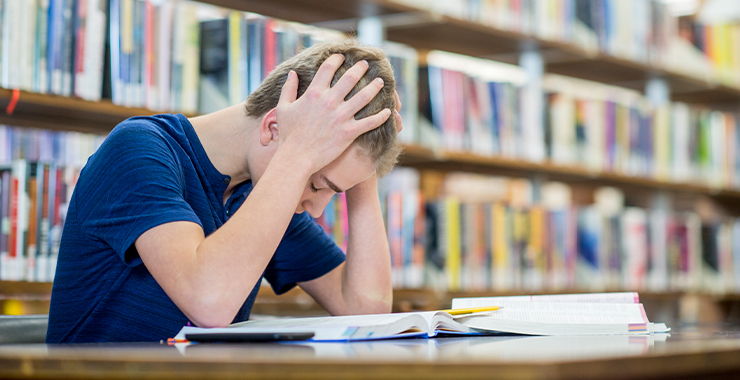10 Things To Know About Teenagers Struggling With Anxiety

While anxiety disorders are most common in adults aged between 30 and 44, teenage anxiety counseling is a field that is growing quickly as teenagers are facing more stressful challenges resulting in growing concerns by teen therapists and counselors nationwide. In fact, many teens are constantly in a state of anxiety, which affects their physical and mental health. And there are several possible causes of this rise in teenagers’ anxiety– the most common ones being greater pressure to succeed and the impact of social media.
If left untreated, anxiety disorders can result in the development of more serious problems in the future. We’ve shared a few things here that might be helpful in dealing with your teen’s anxiety problem.
10 Things To Know About Teenage Anxiety
- Teenage Anxiety Is Different From Anxiety Experienced By Children
As children grow, their fears and worries undergo a change. Teens are not likely to worry about the things that used to trouble them as kids, such as monsters under the bed, the dark, and similar things.
They are more likely to worry about things like their appearance, performance in school, and others’ perception of themselves. As a matter of fact, teenagers are likely to experience anxiety during the middle and high school stages, which makes it challenging for them to concentrate on their studies.
- Anxiety Runs In Families
There can be various causes of teenage anxiety, and understanding the cause is the first step toward resolving the problem. In some cases, anxiety problems may be inherited from one or both parents, and in such situations, the parent’s anxiety can worsen the problem.
Alternatively, such issues may start as separation anxiety during the pre-teen years, when the child is afraid of being separated from their parents.
- Most Common Things That Cause Teenage Anxiety
In the modern world, the pressure to do better is ever-increasing, which in turn, causes anxiety in teens. Teenagers often feel compelled to put in a lot of effort at school even when they’re doing well, and this mental attitude puts considerable pressure on them.
Apart from that, teenagers are more concerned about how the world perceives them. While this factor troubles almost every teenager, some are affected more strongly. Hence, such teens may constantly worry about how others think of them, which triggers or worsens anxiety.
- Signs And Symptoms Of Anxiety In Teens
Anxiety can take various forms in teens, and its symptoms can vary from one person to another. Even then, there are certain common signs of anxiety that are exhibited by every individual suffering from anxiety disorders.
These may include worries and fears about various aspects of life, restlessness, over-alertness, nervousness, and stress. Anxious teens may also suffer from irritability, lack of focus, and sleep problems and may appear excessively restrained or emotional.
- Teenage Anxiety Can Result In Panic Attacks
Some teenagers can suffer from panic attacks due to anxiety, though this is more common in girls than in boys. Such attacks can occur in specific situations, and both physical and emotional symptoms often accompany them.
Unlike anxiety, a panic attack is sudden and highly intense. While it may not be dangerous, it can be frightening for the teen as well as other people present nearby.
- Teen Anxiety May Originate From Phobias
Phobia is an irrational and excessive fear of an object or a situation and is one of the major causes of anxiety. These irrational fears can restrict the type and number of activities a teenager may take part in, eventually developing feelings of anxiety regarding such activities.
A phobia is often classified as a type of anxiety disorder and can, over time, result in depression. That is why anxiety treatments are considered effective in dealing with phobias.
- Anxiety Can Be Linked To Substance Abuse
Like anxious adults, teens suffering from anxiety may resort to recreational drugs to cope with the problem since they provide short-term relief. But this can be very harmful in the long run because such substances do not treat the root cause; instead, they make users dependent. In such scenarios, you may have to hospitalize your teenager to protect them from substance abuse.
Ultimately, it results in a vicious cycle where anxiety can result in problems like addiction, which are much harder to cope with.
- Teenage Anxiety Is Often Accompanied By Depression
Teenagers suffering from anxiety issues are usually a victim of depression; most of the time, depression and anxiety occur concurrently. Anxiety can lead to withdrawal and isolation, resulting in depression. Both mental health conditions are often unnoticed until it gets very late, but you must keep in mind that they can also occur independently.
Like anxiety, depression has become a major health issue among teens in recent years, which is why timely treatment is required to prevent it from getting worse.
- Communication Is Important For Alleviating Anxiety
It can be challenging to communicate with a teen who is irritable, withdrawn, or may be otherwise unwilling to do so. However, having a heart-to-heart conversation can help your child overcome anxiety, so try to talk to them.
Treatment can help control the symptoms of anxiety, but communication can resolve the underlying cause of the issue.
- Cognitive Behavioral Therapy Is The Most Effective Anxiety Treatment
The best way to deal with teenage anxiety is cognitive behavioral therapy which helps teens understand the cause of anxiety and its effects. Therapy combined with medications proves effective in alleviating anxiety.
Final Thoughts
The teenage years are no less than a rollercoaster ride with twists, turns, highs, and sudden drops. There’s no denying that everyone feels anxious at some point in life; however, what may appear as teenage struggles could be a sign of anxiety disorder.
As such, the above points can help you identify situations when this happens and deal with them most effectively. But it is always advisable to seek the help of a professional who is experienced in dealing with such matters. They can prescribe the best treatments for combating anxiety and let you know about other ways of dealing with the issue.


